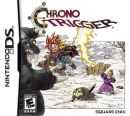I love Jim Sterling thoughts about the lack of content:
"It’s an interesting approach, to say the least. For what it’s promising, Nintendo is coming closer to the idea of “games as a service” than most big budget publishers, who usually use that term to avoid saying they’ve created a glorified DLC hub. There are no microtransactions on the table and the upcoming content is all free, so it inspires a lot more confidence than many other so-called “AAA” games attempting to pull similar moves.
Of course, I can’t review any of that upcoming stuff because it isn’t there yet, so one has to ask – for a hefty MSRP of $59.99, is Splatoon worth purchasing immediately? Most of its value appears to lie in promise, with no guarantee that what’s coming will actually be good, and though updates are on the horizon every few weeks, we don’t know how long for. Nevertheless, it’s far more promise than Titanfall had – a great game in its own right, but one that got old after a week and provided very little reason to return (though free updates have come out for Titanfall, it wasn’t enough to keep me going, possibly because the core of it just wasn’t all that fresh to begin with).
What really matters is that, unlike so many other shooters, the core idea of Splatoon is unique and fun enough that I simply haven’t gotten bored of it, even after playing the same handful of maps for hours. The sheer chaos of the action and unpredictability of each match gives it far stronger legs than something like Evolve had, and the constant hunt for new equipment is rewarding enough to keep me returning. It’s an infectious game, one that may not provide initial value for money in terms of basic content, but is replayable enough to at least justify itself in terms of longevity.
I’m putting my money where my mouth is, too. The review copy of Splatoon is a special pre-launch version that, while identical to the retail release, is incompatible with the official game and will not work online after launch. This game has me hooked enough to where I’ll be stumping up the cash to buy the game despite having played so much of it already. I strongly believe the game does enough to be worth paying for, as I’ll be putting my money where my mouth is and I won’t regret it"
Thanks God for Jim Sterling
Existing User Log In
New User Registration
Register for a free account to gain full access to the VGChartz Network and join our thriving community.



























































